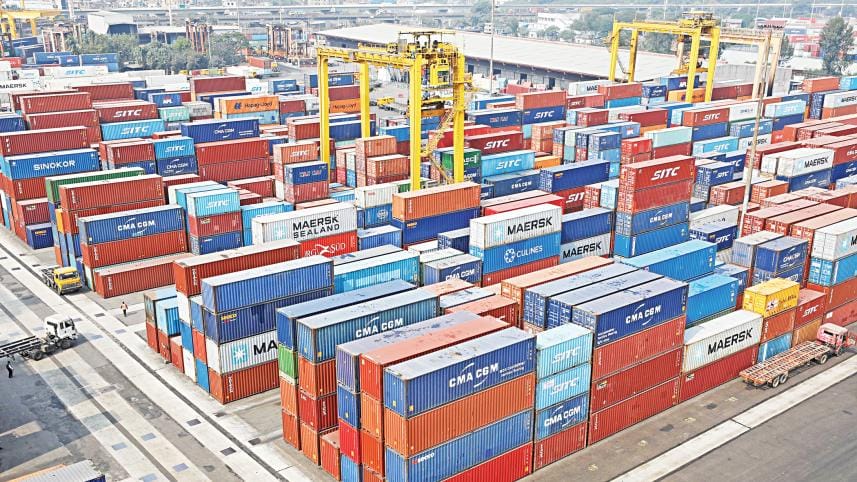Utilise national logistics policy properly to boost economy

National Logistics Policy 2024 is a wonderful step towards developing Bangladesh's economy and enhancing its position in the global market and therefore it needs to be properly utilised, said speakers at a seminar yesterday.
"We don't have a sort of a standard in our logistics system," said Mohammad Tofazzel Hossain Miah, principal secretary to the prime minister in the Prime Minister's Office (PMO).
"But the policy has provided scope to develop the logistics system to grow businesses," he told the seminar titled "National Logistics Policy 2024 of Bangladesh: From Policy Framework to Execution".
The Foreign Investors' Chamber of Commerce and Industry (FICCI) organised the event at The Westin Dhaka.
"So, now we need efficiency to utilise technology to reduce the cost of trade and business. So, I feel that this is what needs to be executed first. So, you should bring about much more foreign partnerships," said Tofazzel.
He also suggested bringing changes in management teams through advanced technology and software.
The policy is aligned with the target to become a "high-income country" and evolve into a "Smart Bangladesh" as per "Vision 2041", he said.
According to him, the logistics policy aims to lower business costs, boost exports and integrate the local markets with the global value chain.
Mohammad Sohail, chairman of Chittagong Port Authority, said this was Bangladesh's first-ever national logistics policy.
"By putting this policy into action effectively, we aim to develop a top-tier, up-to-date, and high-performing logistics network," he said.
He also said foreign investors were interested to provide $3 billion to $4 billion to set up a Bay Terminal.
An extension of the Chattogram port, the terminal is scheduled to be set up on an around 6-kilometre stretch of land from the back of Chattogram Export Processing Zone to Rasmonighat on the Bay of Bengal.
Once up and running, the Bay Terminal would be a game changer for the Chattogram port, he said.
Zaved Akhtar, president of the FICCI, said new monitoring mechanisms and councils would ensure the logistics policy's success.
He hoped that the formation of a national logistics development council and a national logistics development and coordination committee would help to provide necessary guidelines and coordination to ensure effective and efficient implementation of the policy.
"These measures, along with the performance monitoring and regular engagement with the private sector, are crucial for ensuring an efficient logistics sector," he said.
In a keynote presentation, Nihad Kabir, former president of the Metropolitan Chamber of Commerce and Industry, said the policy would act as a catalyst in drawing private investment in vital areas like ports and railways.
She said the policy would attract investment, create jobs and build up new skills, reflecting a joint effort by the private and public sectors.
Kabir also said the policy would enhance logistics, increase competitiveness, and boost productivity.
The seminar was moderated by M Masrur Reaz, chairman of the Policy Exchange Bangladesh.
Syed Ershad Ahmed, president of the American Chamber of Commerce in Bangladesh, Abul Kasem Khan, vice-chairman of the AK Khan & Co, Shahida Sultana, director general (executive cell) at the PMO, and Nikhil D'Lima, managing director of Maersk Bangladesh, also spoke.



 For all latest news, follow The Daily Star's Google News channel.
For all latest news, follow The Daily Star's Google News channel.
Comments